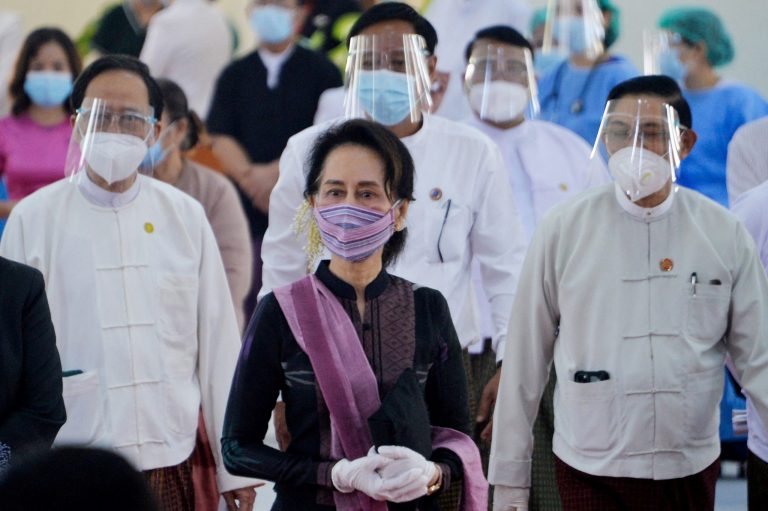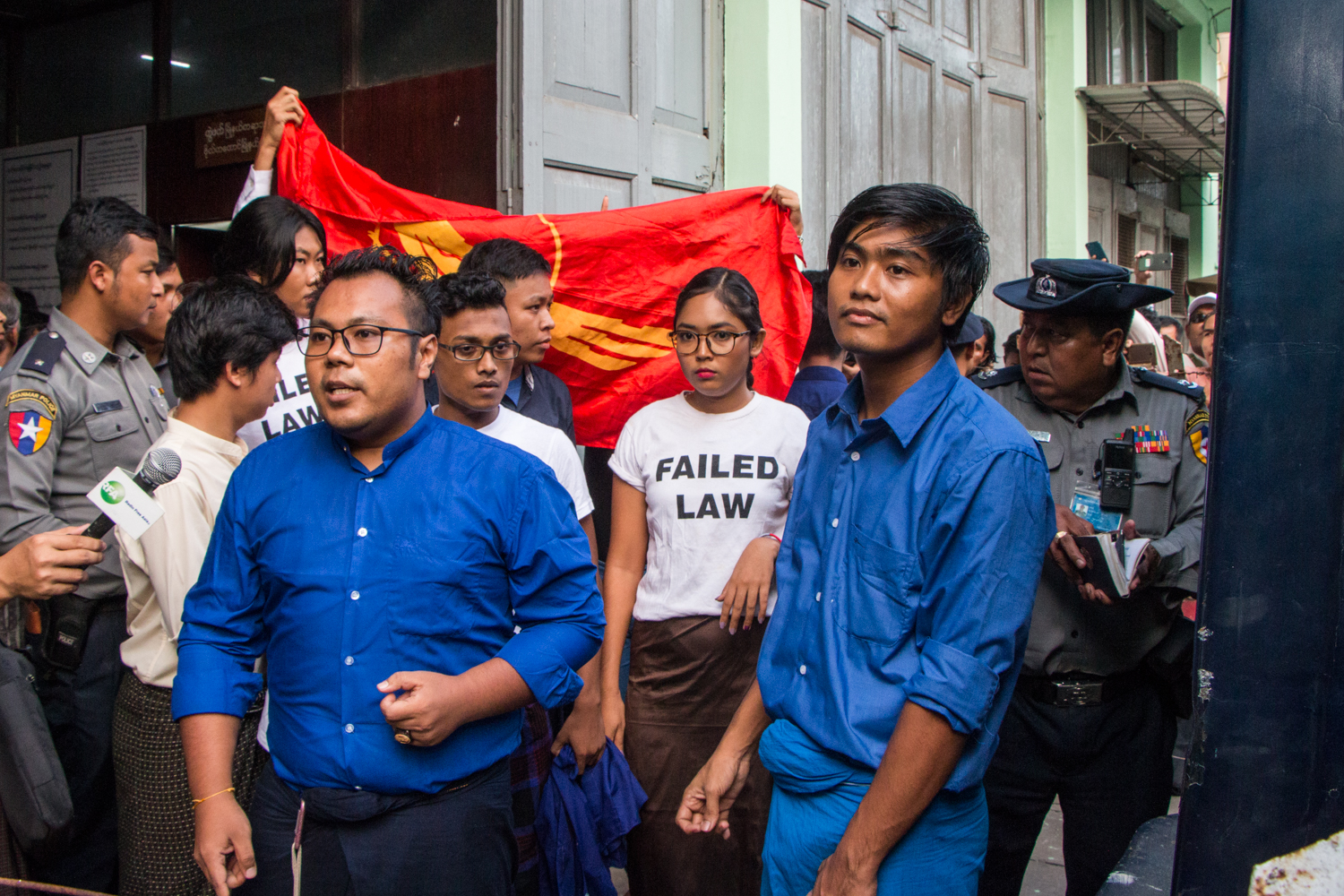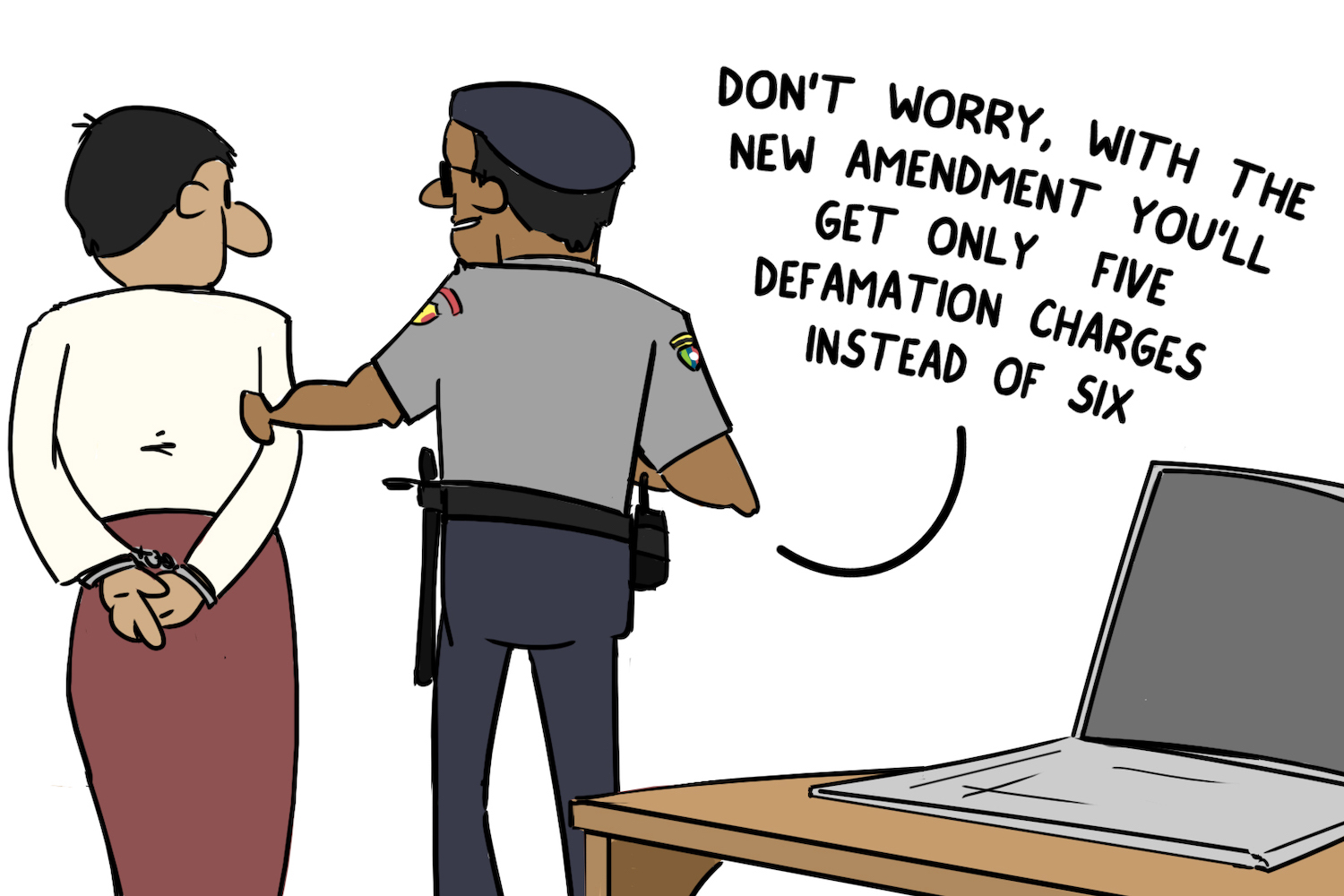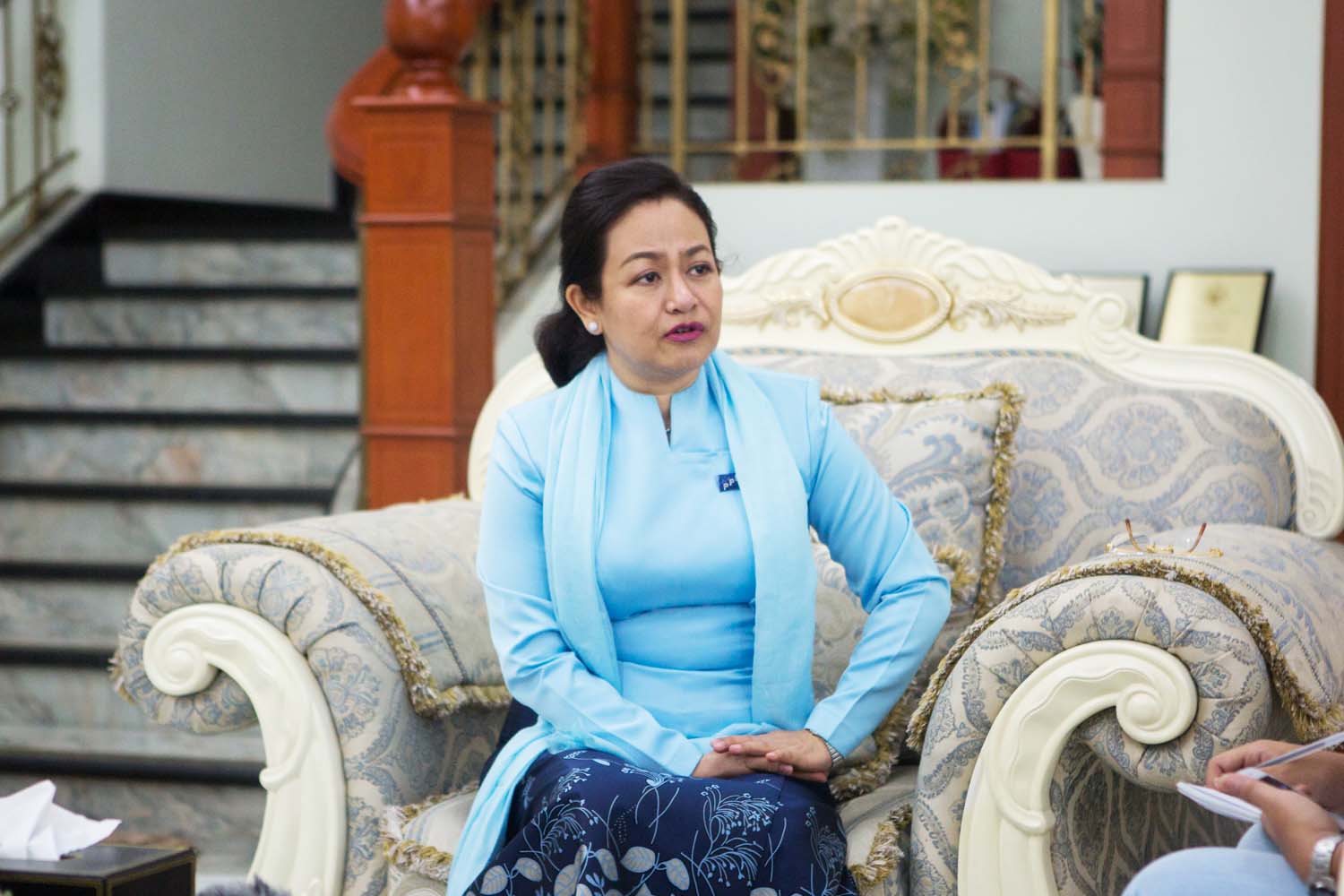Section 66(d) of the Telecommunications Law “remains the primary tool for censoring criticism and silencing critics” in Myanmar despite being amended, says a civil society group seeking its repeal.
“The Myanmar government should realise that there is no place in a democracy for 66(d) and it needs to be completely repealed,” Free Expression Myanmar says in a report released in Yangon on December 11 on the controversial law, which criminalises defamation.
The 35-page report in Burmese and English, “66(d): No real change”, analyses complaints made under 66(d) before and after the law was amended in August, reducing the grounds for complaint from seven to four.
However, FEM said it had not identified a single complaint based on the three grounds removed by the amendment since the law was enacted in 2013.
“As such, the amendment has made no discernable impact,” said FEM, which produced the report with Myanmar ICT for Development (MIDO) and the Research Team for Telecommunications Law.
Support more independent journalism like this. Sign up to be a Frontier member.
The report says 66(d) is “fundamentally undemocratic” because the grounds under which a complaint may be laid are vague.
“At least two-thirds of all complaints would have been rejected if 66(d) was properly defined,” it says, adding that attempts to deal with the law’s vagueness by relying on definitions used in the Penal Code had been unheeded by the courts.
FEM says it identified 106 cases of complaints under 66(d) in the two years since November 2015, of which 11 were made under the Union Solidarity and Development party government and 95 were made since the National League for Democracy took office.
It said 66(d) has been the tool of choice for those in positions of power, “particularly related to the state, who want to extend their punishment of people who are trying to hold them accountable, online”.
FEM said its research found that every case brought before a court of first instance under 66(d) had resulted in a guilty verdict, all of which had resulted in a comparatively harsh prison sentence.
It said prosecutions relied on unreliable evidence, courts were unwilling to listen to expert testimony, trials were delayed while defendants remained in prison without bail and allegations of mistreatment of defendants were ignored.
“At the same time, complainants with legitimate concerns and who are not powerful or influential are unlikely to get the redress they want,” the report said.
“Complaints are less likely to be properly investigated if they are made by people who are not influential, or by women, or are related to threats or extortion,” it said.
As well as urging the repeal of 66(d), the report also calls for the Penal Code to be amended to decriminalise defamation.







